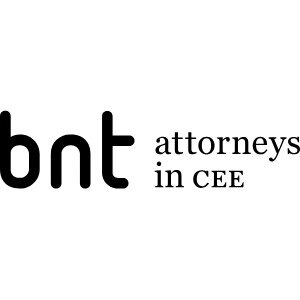Best Debt & Collection Lawyers in Slovakia
Share your needs with us, get contacted by law firms.
Free. Takes 2 min.
Or refine your search by selecting a city:
List of the best lawyers in Slovakia
About Debt & Collection Law in Slovakia
Debt and collection law in Slovakia encompasses the legal framework that governs the process of collecting outstanding debts. The field is guided by both national laws and European Union regulations, ensuring the protection of both creditors and debtors. Slovakia's legal system provides measures for amicable settlements and strict enforcement mechanisms through courts if necessary. The Slovak Commercial Code and the Civil Code are the primary legal sources, along with specific laws related to bankruptcy and restructuring.
Why You May Need a Lawyer
There are several situations where legal assistance can be crucial in debt and collection matters in Slovakia:
- Negotiating Settlements: Engaging a lawyer can help negotiate more favorable repayment terms.
- Enforcement of Debt: If friendly negotiations fail, legal expertise is essential for initiating court proceedings.
- Debt Disputes: In cases of disputed debts, a lawyer can represent your interests effectively.
- Bankruptcy Proceedings: Whether debtor or creditor, legal guidance is necessary during bankruptcy or restructuring.
- Consumer Protection Issues: Legal counsel can help if consumer rights have been violated in debt collection practices.
Local Laws Overview
Key aspects of debt and collection laws in Slovakia include:
- Amicable Settlement Requirement: Before taking legal action, creditors must attempt to resolve the debt amicably.
- Limitation Periods: Typically, debts can be collected up to three years from the due date, with variations based on specific case circumstances.
- Judicial Enforcement: Courts can issue orders for payment, after which enforcement can proceed through court bailiffs if debts remain unpaid.
- Bankruptcy Law: Provides procedures for insolvency, offering restructuring or liquidation options for individuals and businesses.
- Interest Rates and Penalties: Legal limits exist on interest rates and penalties that can be imposed on overdue debts.
Frequently Asked Questions
What is the first step if I can't repay my debt?
The first step is to communicate with your creditor and try to negotiate a repayment plan or settlement.
How long do creditors have to collect a debt?
The general limitation period is three years from the due date, but this can vary depending on the debt type and specific circumstances.
Can a creditor contact me at work?
Creditors can contact you at work, but they must respect your privacy and not share information with colleagues.
What can I do if a debt collector is harassing me?
Document all communication and consider filing a complaint with the Slovak Trade Inspection or seeking legal advice.
Can I be imprisoned for not paying a debt?
No, imprisonment for debt is not permitted. However, creditors can pursue financial enforcement actions through the courts.
What are my rights if my debt is sold to a collection agency?
You retain the same rights you had with the original creditor, and the collection agency must respect all applicable laws.
How can I dispute a debt I do not owe?
Submit a written dispute to the creditor or collection agency, providing any evidence you have that supports your claim.
Will a debt appear on my credit report indefinitely?
Negative information typically stays on your credit report for up to five years.
What is an execution order, and how can it affect me?
An execution order allows court bailiffs to enforce debt repayment through asset seizure or wage garnishment.
Can I declare personal bankruptcy in Slovakia?
Yes, individuals can declare bankruptcy if over-indebted, offering possible discharge from debts after asset liquidation.
Additional Resources
Several resources can provide further assistance and information:
- Slovak Trade Inspection (SOI): Handles complaints about unfair debt collection practices.
- Financial Consumer Arbitrator: Dispute resolution service for financial consumer issues.
- Slovak Bar Association: Offers information on finding legal professionals specialized in debt law.
- Slovak Ministry of Justice: Provides resources and updates on relevant legal regulations and procedures.
Next Steps
If you require legal assistance in debt and collection matters, consider taking the following steps:
- Consult a Lawyer: Reach out to a lawyer who specializes in debt and collection law for professional advice tailored to your situation.
- Gather Documentation: Collect all relevant documents related to the debt, including contracts, correspondence, and payment records.
- Consider Mediation: Mediation can be a cost-effective way to resolve disputes without going to court.
- Stay Informed: Keep up with any changes in local laws and seek informational resources to understand your rights and obligations better.
Lawzana helps you find the best lawyers and law firms in Slovakia through a curated and pre-screened list of qualified legal professionals. Our platform offers rankings and detailed profiles of attorneys and law firms, allowing you to compare based on practice areas, including Debt & Collection, experience, and client feedback.
Each profile includes a description of the firm's areas of practice, client reviews, team members and partners, year of establishment, spoken languages, office locations, contact information, social media presence, and any published articles or resources. Most firms on our platform speak English and are experienced in both local and international legal matters.
Get a quote from top-rated law firms in Slovakia — quickly, securely, and without unnecessary hassle.
Disclaimer:
The information provided on this page is for general informational purposes only and does not constitute legal advice. While we strive to ensure the accuracy and relevance of the content, legal information may change over time, and interpretations of the law can vary. You should always consult with a qualified legal professional for advice specific to your situation.
We disclaim all liability for actions taken or not taken based on the content of this page. If you believe any information is incorrect or outdated, please contact us, and we will review and update it where appropriate.
Browse debt & collection law firms by city in Slovakia
Refine your search by selecting a city.












